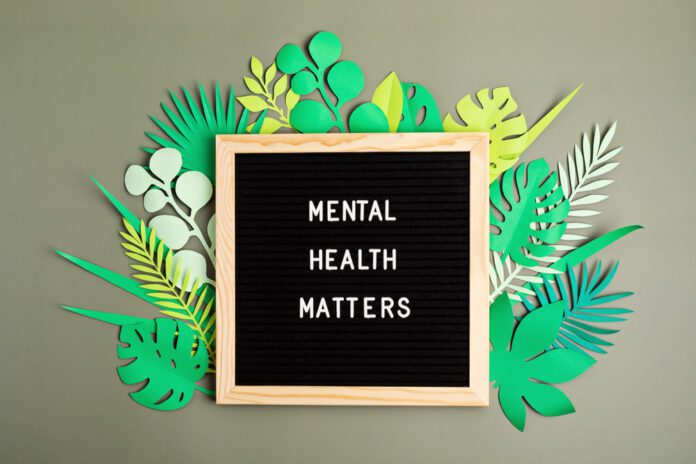May is Mental Health Awareness Month, a time dedicated to fostering understanding and awareness around mental health issues. This month serves as a reminder of the importance of mental well-being and promotes a broader conversation about how to support and improve mental health in communities worldwide. This article delves into various facets of mental health, explores common conditions, offers coping strategies, and lists essential resources that may help individuals manage their mental well-being.
Importance of Mental Health
Mental health encompasses our emotional, psychological, and social well-being, affecting how we think, feel, and act. It also helps determine how we handle stress, relate to others, and make choices. Maintaining good mental health is imperative not only for individual well-being but also for contributing positively to family and community life.
Why Focus on Mental Health?
- Emotional Well-being: Good mental health maintains emotional balance and enables individuals to enjoy life. The ability to cope with stress and recover from adversity is rooted largely in emotional resilience, which can be strengthened through practices that support mental health.
- Enhanced Productivity: Individuals with good mental health are more likely to perform well in the workplace or school, exhibiting higher levels of engagement and efficiency.
- Stronger Relationships: Mental health significantly influences how we communicate and bond with others. By promoting understanding and empathy, improved mental health can lead to better relationships with family, friends, and colleagues.
Common Mental Health Conditions
Recognizing and understanding mental health conditions is essential in fostering empathy and providing the appropriate support to those affected. Here are some of the most common mental health disorders:
Depression: This mood disorder is characterized by an overwhelming feeling of sadness, lack of interest in activities, and an inability to carry out daily tasks for at least two weeks. Symptoms also often include changes in appetite, sleep disturbances, and a lack of energy. Approximately 21 million adults have experienced at least one major depressive episode, which accounts for about 8.3% of all U.S. adults. This condition is more prevalent among young adults aged 18-25 and females (CDC).
Anxiety Disorders: These disorders form a category of mental health diagnoses that lead to excessive nervousness, fear, apprehension, and worry. Common types include generalized anxiety disorder, panic disorder, and social anxiety disorder, each presenting unique symptoms that interfere with daily activities. Anxiety disorders affect around 19.1% of adults annually, making them some of the most common mental health conditions in the U.S. (CDC).
Bipolar Disorder: Bipolar disorder is known for extreme mood swings, which include emotional highs (mania or hypomania) and lows (depression). These mood swings can affect sleep, energy levels, behavior, judgment, and the ability to think clearly. About 2.8% of U.S. adults are estimated to have bipolar disorder in any given year, with a lifetime prevalence of approximately 4.4%. This condition affects males and females equally (NIMH).
Schizophrenia: Schizophrenia is a complex, long-term medical illness, characterized by symptoms like delusions, hallucinations, trouble with thinking and concentration, and lack of motivation. Despite its complexity, schizophrenia is treatable and manageable with proper therapy and medications. Schizophrenia is less common, with a prevalence of approximately 0.25% to 0.64% among the U.S. adult population. It is a severe condition that significantly impacts daily functioning and quality of life (NIMH).
The Impact of Nutrition on Mental Health

Nutrient Absorption and Brain Function: The brain requires various nutrients to function correctly. These nutrients support neurotransmitter functions, which are critical for sending messages throughout the nervous system. Nutrient deficiencies can lead to changes in these neurotransmitter processes, potentially impacting mental health.
Mood Regulation: Certain diets and nutrients have been linked to brain chemistry, influencing mood regulation. For example, a lack of omega-3 fatty acids, vitamins, and minerals can lead to changes in mood and are associated with an increased risk of depression.
Cognitive Function: Good nutrition supports cognitive processes including memory, attention, and problem-solving. Nutrients such as antioxidants protect the brain from oxidative stress, which can damage brain cells and affect cognitive function.
Good Brain Foods
Incorporating specific foods into your diet can support brain health and improve mental well-being. Here are some of the best “brain foods”:
Fatty Fish: Rich in omega-3 fatty acids, fatty fish like salmon, trout, and sardines are critical for brain health. Omega-3s are used to build brain and nerve cells, essential for learning and memory. They also have anti-inflammatory effects that may protect against brain aging and neurodegenerative diseases.
Nuts and Seeds: Nuts and seeds are good sources of antioxidants, vitamins, and minerals, particularly almonds, walnuts, and sunflower seeds. They contain a healthy dose of vitamin E, which is associated with less cognitive decline as we age.
Whole Grains: Whole grains are rich in fiber and contribute to overall blood flow to the brain. Foods like oats, barley, and whole wheat help stabilize blood glucose levels, providing a steady energy supply to the brain, which is crucial for maintaining cognitive function.
Berries: Berries are rich in flavonoids, which have strong anti-inflammatory and antioxidant properties. Studies have shown that these compounds improve communication between brain cells, reduce inflammation throughout the body, and increase plasticity, which helps brain cells form new connections, boosting learning and memory.
Leafy Greens: Leafy greens such as kale, spinach, collards, and broccoli are rich in brain-healthy nutrients like vitamin K, lutein, folate, and beta carotene. Research suggests these plant-based foods may help slow cognitive decline.
Eggs: Eggs are a good source of several nutrients tied to brain health, including vitamins B6 and B12, folate, and choline. Choline is particularly important in creating acetylcholine, a neurotransmitter that regulates mood and memory.
Maintaining a diet high in these nutrients can support brain function and influence the manifestations of mental health conditions. While good nutrition can be a valuable tool in maintaining and enhancing mental health, it is one part of a holistic approach that should also include physical activity, mental health therapies, and other medical interventions when necessary.
Coping Strategies and Tips

Managing mental health can be a dynamic and personal process, and what works well for one person may not be effective for another. However, some general strategies can help improve mental health:
Mindfulness and Meditation
Engaging in mindfulness and meditation can help focus the mind and reduce overwhelming feelings of stress by bringing one’s attention back to the present.
Regular Exercise
Physical activity is significantly beneficial for mental health. It not only increases the brain’s production of endorphins but also promotes changes in the brain that support memory and learning.
Adults aged 18–64 should aim for:
- At least 150 to 300 minutes of moderate-intensity aerobic physical activity per week, or
- 75 to 150 minutes of vigorous-intensity aerobic physical activity per week, or
- An equivalent combination of moderate- and vigorous-intensity activity.
- Muscle-strengthening activities on two or more days a week that work all major muscle groups. These activities not only help in reducing the risk of chronic diseases but also benefit mental health by decreasing symptoms of depression and anxiety (World Health Organization (WHO)).
Adequate Sleep
Sleep and mental health are closely connected. Sleep deprivation can aggravate symptoms of mental health disorders, while a regular sleep schedule can improve mood and emotional regulation.
Adults typically need between 7 to 9 hours of sleep per night. Ensuring consistent, quality sleep can help manage stress, improve brain function, and regulate mood. It’s also recommended to establish a regular sleep-wake schedule to enhance sleep quality and overall mental well-being (Sleep Foundation) (HSE.ie).
Professional Therapy
Therapists, counselors, and psychologists offer crucial support in managing mental health issues. They provide a safe space to explore feelings and cope with emotional and psychological strains in a structured way.
Telehealth and Mental Health Apps: Pros, Cons, and Legal Considerations

The rise of digital technology has transformed how mental health services are delivered. Online telehealth platforms and mental health apps have become popular alternatives to traditional in-person therapy sessions. Here we explore the advantages and disadvantages of these digital options, as well as their legal implications.
Pros of Telehealth and Mental Health Apps
Accessibility: One of the most significant benefits of telehealth and mental health apps is their ability to make mental health services more accessible. People living in remote areas, those with mobility issues, or individuals with tight schedules can find it easier to access care.
Convenience: Telehealth services offer the convenience of scheduling sessions that fit into personal schedules without the need to commute. Apps provide tools and resources that can be accessed anytime, making continuous support possible.
Anonymity and Comfort: Online services can offer a level of anonymity that might encourage more people to seek help. Additionally, receiving therapy in the comfort of one’s own home can reduce the stigma or anxiety associated with visiting a therapist’s office.
Cons of Telehealth and Mental Health Apps
Lack of Personal Interaction: Telehealth may not fully replicate the connection and rapport that are typically built during in-person therapy sessions. Non-verbal cues such as body language can be harder to read through a screen, which can potentially impact the effectiveness of treatment.
Technology Issues: Technical problems like unstable internet connections or software issues can interrupt sessions, potentially causing frustration and disrupting the therapeutic process.
Privacy Concerns: Digital platforms can pose risks regarding data privacy and security. There is a concern about the confidentiality of sensitive information, especially with apps that may not adhere strictly to health privacy laws. Be sure to understand the privacy policies before signing up for services.
Legal Considerations
Licensing and Jurisdiction: Telehealth providers are typically required to be licensed in the state where the patient resides, not just where the provider is located. This requirement can limit the availability of providers for patients in certain regions.
Compliance with Health Laws: Telehealth services and apps must comply with health privacy laws such as the Health Insurance Portability and Accountability Act (HIPAA) in the United States. These laws govern how health information is protected and shared.
Regulation of Apps: Not all mental health apps are regulated, and their effectiveness may not be scientifically validated. Users should look for apps developed with input from qualified mental health professionals and which provide clear information about their privacy practices.
While telehealth and mental health apps offer promising benefits, they also come with challenges and limitations. It is essential for users to consider these factors and choose platforms that are compliant with legal standards and provide a level of interaction that meets their needs. For many, a combination of digital and in-person resources may be the best approach to managing their mental health effectively.
Resources and Support

Accessing the right support can make a crucial difference in managing mental health effectively. Here are some resources that provide assistance:
National Alliance on Mental Illness (NAMI)
NAMI is a beacon for the mental health community, offering advocacy, education, and support for individuals with mental illnesses and their families. Visit NAMI.
Mental Health America (MHA)
This community-based nonprofit is dedicated to addressing the needs of those living with mental illness and promoting overall mental health. Their resources include prevention services, early identification, and intervention efforts. Explore MHA resources.
Crisis Text Line
For immediate help, the Crisis Text Line connects individuals to trained crisis counselors. Text “HOME” to 741741 to start a conversation. Learn more about Crisis Text Line.
SAMHSA’s National Helpline
The Substance Abuse and Mental Health Services Administration (SAMHSA) provides a confidential 24/7 helpline that offers information and treatment referral services. Contact SAMHSA
Mental Health Awareness Month is a time for reflection, learning, and action. By better understanding mental health, adopting effective coping strategies, and utilizing available resources, we can enhance our well-being and support others. Let’s use this time to advocate for better mental health for everyone, reducing stigma and fostering a more supportive community.
Like this article? You may also like:
The Goldie Hawn Foundation Shines Bright Light on Mental Health
The Importance of Finding a Mental Health Care Provider You Can Trust
Connect with AmeriDisability on Facebook, Twitter and Instagram.
Check out the Resources page. Claim or add your disability-focused business or nonprofit for free.






